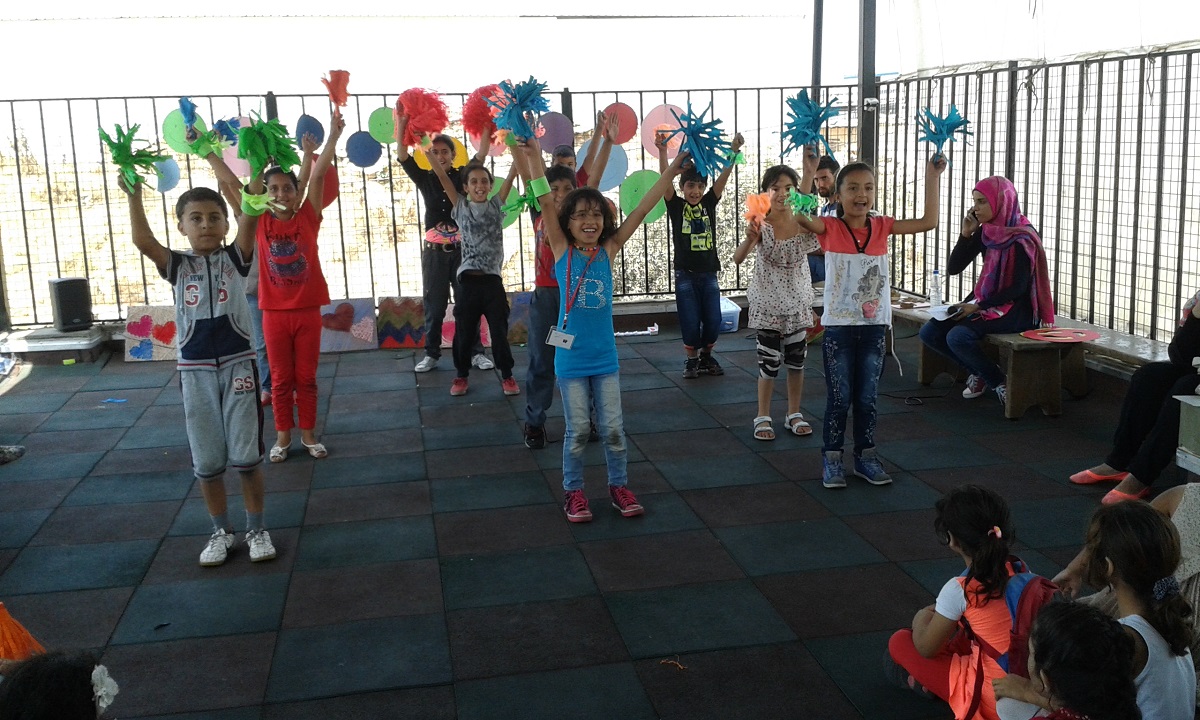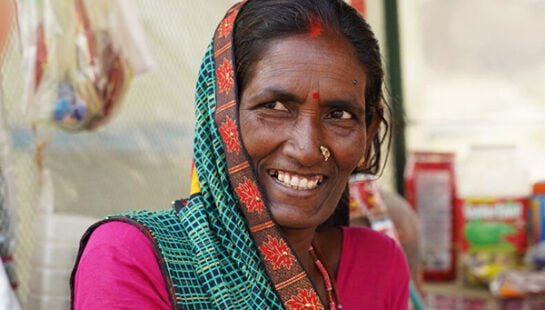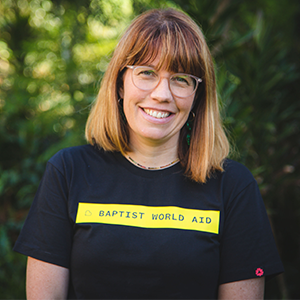Warning: Ferial’s story contains confronting subject matter.
Hay el Gharbeh is an impoverished shantytown located in the southern suburbs of Beirut. Our Christian partner, Lebanese Society for Educational and Social Development (LSESD) has been working with Tahaddi, an organisation working in the area providing educational support services to some of the most vulnerable and marginalised communities living in Lebanon.
Ferial*, as a Syrian refugee, is part of one such marginalised community. This is her story.
‘In 2014, my four children and I fled Syria.
My husband had already been living and working away from our home for two years, as war made jobs scarce and hard to find.
Before fleeing, my family lived in a two-room home on a small piece of land. Around us, Islamic State and the Kurds were fighting each other. Our village was paying a high price. Young men were being abducted and a food blockade made everyone hungry. We were frightened and life was becoming unbearable.
Every month my husband sent us money from Beirut where he was working as a tile setter. Soon I had saved 400 dollars, enough for me and my four children to escape.
Then, one day, we boarded a bus bound for Beirut.
The trip took 24 hours and along the way we were stopped and ransomed four times. I arrived in Lebanon exhausted and emotionally broken with only 25 dollars in my pocket.
There were many other Syrian refugees living in Hay el Gharbeh when I arrived, including the shopkeeper who sold us our basic food needs.
One morning I sent my oldest daughter, Manal,* to his shop to get some bread for the family. She came home screaming saying that the shopkeeper had tried to kiss her and put his hands everywhere on her body. She was only six at the time.
She could not be comforted. I felt the anger rise in me and ran to the shop and began screaming at him. He pretended nothing happened.
I felt helpless, angry and even ashamed. In our culture, this kind of abuse can bring shame to the family. People would talk; people would suggest that maybe my daughter was at fault.
In the midst of my grief, I heard about the work of LSESD from a neighbour who encouraged me to visit their Health Centre and visit a social worker.
So I went. Through tears, I told her our story.
After the emotional shock of her terrible experience, Manal began to wet herself during the night. I was too overwhelmed to help her, but both my daughter and I have received a lot of support from the staff at Tahaddi.
Manal now attends school and next year all three of my daughters will be enrolled at the Tahaddi Education Centre.

I was so afraid my children would not be able to receive an education. I had to stop school at the age of 12 to take care of my ailing father, and I really wanted them to be given the opportunities I missed out on.
Seeing my daughters in school has enabled me to stand back on my own two feet.
At school, Manal enjoys lessons about music and singing most of all. When I hear her sing, I am reminded that I, too, used to love music when I was small. Since the war, since these problems began, my song has been silenced and I have had no desire to sing.
But maybe it’s time for me to try again . . .’
Ferial’s involvement with Tahaddi is the result of a painful story that still haunts her family. At once hopeful and heartbreaking, Ferial’s journey demonstrates that, even in the darkest of times, light cast by God’s love cannot be extinguished.
*Names have been changed for the protection of the subjects.



 Baptist World Aid
Baptist World Aid

 Meredith Benson,
Meredith Benson,